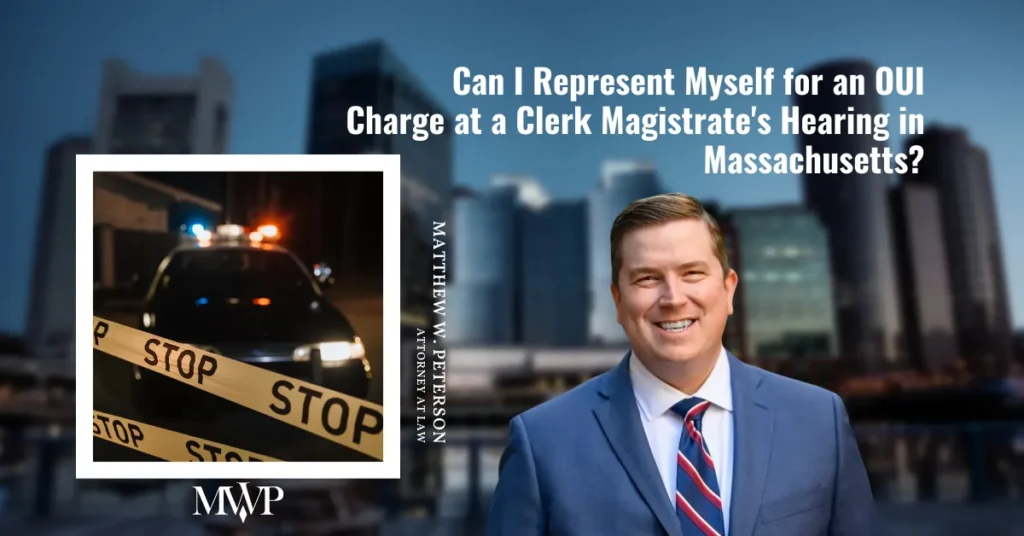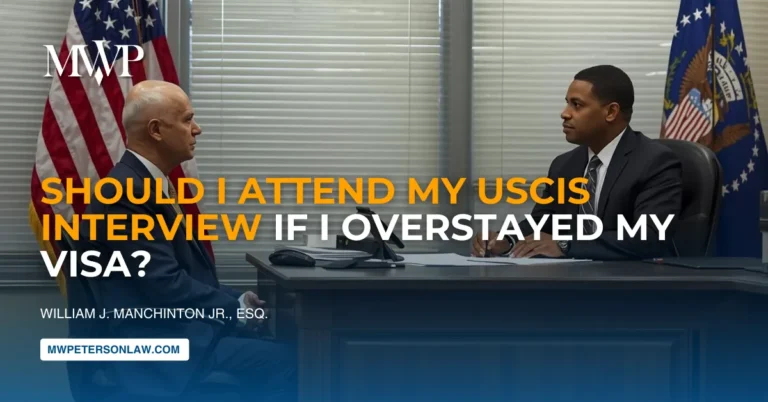An OUI charge at a Clerk Magistrate’s Hearing in Massachusetts is a serious matter. If you’ve received a summons for one of these hearings following an OUI (Operating Under the Influence) charge, you might be considering whether you can represent yourself. Legally, self-representation (pro se) is your right—but that doesn’t mean it’s always a wise choice. Understanding what’s at stake and how these hearings function is critical before making your decision.
What Is OUI Charge At A Clerk Magistrate’s Hearing?
A Clerk Magistrate’s hearing, also known as a “show cause” hearing, determines whether there is probable cause to issue criminal charges. This is your first chance to avoid having the OUI offense become part of your criminal record. If the clerk decides not to issue a complaint, the charge ends there.
Serious Risks of Representing Yourself
Legal Complexity of OUI Charges
Massachusetts OUI laws are highly technical, often involving scientific evidence such as breathalyzer results, field sobriety tests, and officer testimony. Without legal training, you may struggle to challenge this evidence or understand its implications.
Risk of Self-Incrimination
Anything you say at the hearing can and will be used against you if formal charges are issued. Without an attorney, you might inadvertently admit to elements of the crime or make statements that hurt your defense.
Procedural Disadvantages
Clerk Magistrate’s hearings follow specific legal standards and procedures. A misstep in procedure or misunderstanding of legal terms can harm your case.
Emotional Pressure
OUI charges carry stigma and potential consequences like license suspension, fines, and even jail time. Representing yourself under emotional stress may impair your judgment and ability to advocate effectively.
Why Hiring a Defense Attorney Is Highly Recommended
Knowledge of OUI Law
A skilled Boston OUI attorney understands the technicalities of Massachusetts OUI law and how to challenge the evidence or present mitigating circumstances
Case Dismissal Potential
An experienced Boston lawyer may be able to persuade the Clerk Magistrate not to issue a complaint at all, keeping the incident off your record entirely.
Protection from Self-Incrimination
An attorney can speak on your behalf, minimizing your risk of making damaging admissions.
Strategic Defense
A Boston OUI attorneys know how to frame your side of the story in a way that aligns with legal standards and maximizes your chance of avoiding charges.
Key Considerations Before Choosing to Represent Yourself
- The complexity of OUI laws and evidence
- The long-term impact of a criminal OUI charge
- Your comfort level with court procedures and public speaking
- The risk of saying something incriminating under pressure
Get Legal Support Early
At the Law Office of Matthew W. Peterson, we have successfully represented many clients at Clerk Magistrate’s hearings for OUI charges. Our goal is always to stop the charges before they start—keeping your record clean and protecting your future.
If you’re facing an OUI charge in Massachusetts, call us now at 617-295-7500 for experienced, confidential legal representation.
Frequently Asked Questions (FAQ)
Q: What is a Clerk Magistrate’s hearing for an OUI in Massachusetts?
A: It’s a preliminary hearing where the Clerk Magistrate determines whether there is enough evidence to issue formal criminal charges for operating under the influence.
Q: Is it legal to represent myself at a Clerk Magistrate’s hearing?
A: Yes, but self-representation is not advisable in OUI cases due to the legal complexity and risk of self-incrimination.
Q: What happens if the Clerk Magistrate issues a complaint?
A: Your case proceeds to arraignment and enters the criminal court system, where you’ll face potential penalties such as license suspension, fines, and jail time.
Q: Can an attorney really prevent charges from being filed?
A: In many cases, yes. A skilled Boston Defense attorney can argue against the issuance of a complaint, negotiate alternatives, or present evidence that weakens the case.
Q: How soon should I contact a lawyer after receiving a hearing notice?
A: Immediately. Early legal intervention greatly improves your chances of avoiding formal charges and protecting your record.











